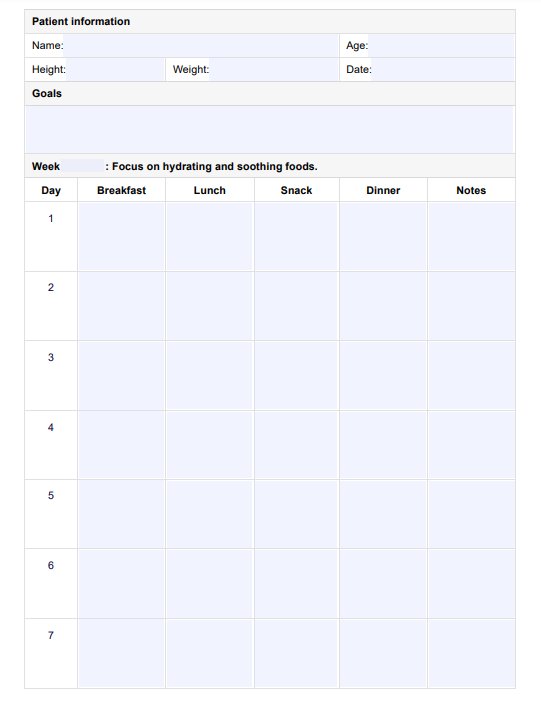Eating raw or undercooked meat, especially ground beef, increases the risk of E. coli infections, as the bacteria can be present in the meat and survive if not properly cooked. This can lead to severe gastrointestinal symptoms like bloody diarrhea and abdominal cramps.

E. Coli Recovery Diet
Discover more about E. coli recovery, what foods to recommend and avoid, and the benefits of an E. Coli Recovery Diet plan.
E. Coli Recovery Diet Template
Commonly asked questions
Drinking raw milk poses a risk of E. coli infection because it may contain harmful bacteria from contaminated cows. Pasteurized milk is a safer alternative, as the heat treatment kills any potentially harmful bacteria, including E. coli.
Symptoms of E. coli infection include abdominal cramps, watery diarrhea, and bloody diarrhea, which can be more severe than typical food poisoning. Unlike other foodborne illnesses, some E. coli strains can lead to serious complications like hemolytic uremic syndrome (HUS), particularly in vulnerable populations.
EHR and practice management software
Get started for free
*No credit card required
Free
$0/usd
Unlimited clients
Telehealth
1GB of storage
Client portal text
Automated billing and online payments











